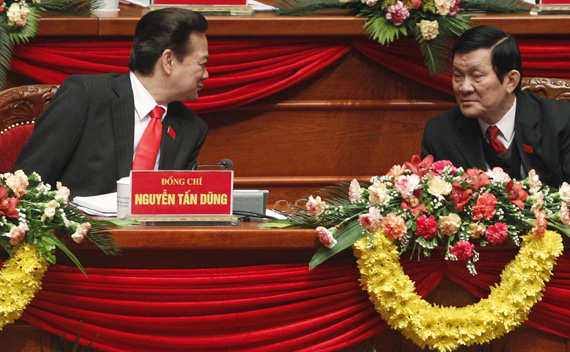Vietnam: The More Things Change…
More on:

With the completion of Vietnam’s 11th Party Congress, which was overshadowed by Hu Jintao’s visit to the United States, we can assess the results. And the answer is: Not exactly a step forward. As General Secretary, the party picked Nguyen Phu Trong, known as a relative hard-liner, a man who previously worked as an editor at one of the main Communist Party publications and was known, as Asia Times reported, as an “enforcer of Marxist thought.”
Other senior military and security officials gained promotions, while more moderate officials hailing from diplomatic backgrounds and economic reform backgrounds did not fare so well at the Party Congress. Trong himself is not known as an advocate of economic reform, of fostering foreign investment, and of cutting away at the maze of regulations and opaque state ownerships that characterize Vietnam’s economy and can frustrate both local entrepreneurs and foreign investors. Further reforms might help address some of the serious economic problems Vietnam is facing, including a morass of debt at inefficient state companies, a current account deficit, and questions about the viability of the dong. But, more likely, these problems will allow hard-liners, after the Party Congress, to apply the brakes even more in terms of economic reforms.
On security issues, Vietnam will continue to strengthen its relationship with the United States – even hard-liners in the Party have a healthy fear of China, given Vietnam’s history. But though some Vietnamese advocates of reform had hoped that the political climate, which has been increasingly harsh over the past year, in the run-up to the Congress, would slacken off slightly afterward, that doesn’t look too likely. (Vietnam has fallen, in recent years, in Freedom House’s rankings of political openness.) That tightening/slackening trend had been apparent around other Party Congresses (and also can be witnessed in China), but don’t expect it now. Besides the ascension of hard-liners connected to the security forces, Nguyen Tan Dung, the prime minister, is hard-line on domestic political reform, even though he is somewhat more open on economic issues.
After the Congress, Nguyen Phu Trong told reporters that it had been an exercise in "straightforwardness and true democracy." Actually, expect just the opposite.
More on:
 Online Store
Online Store